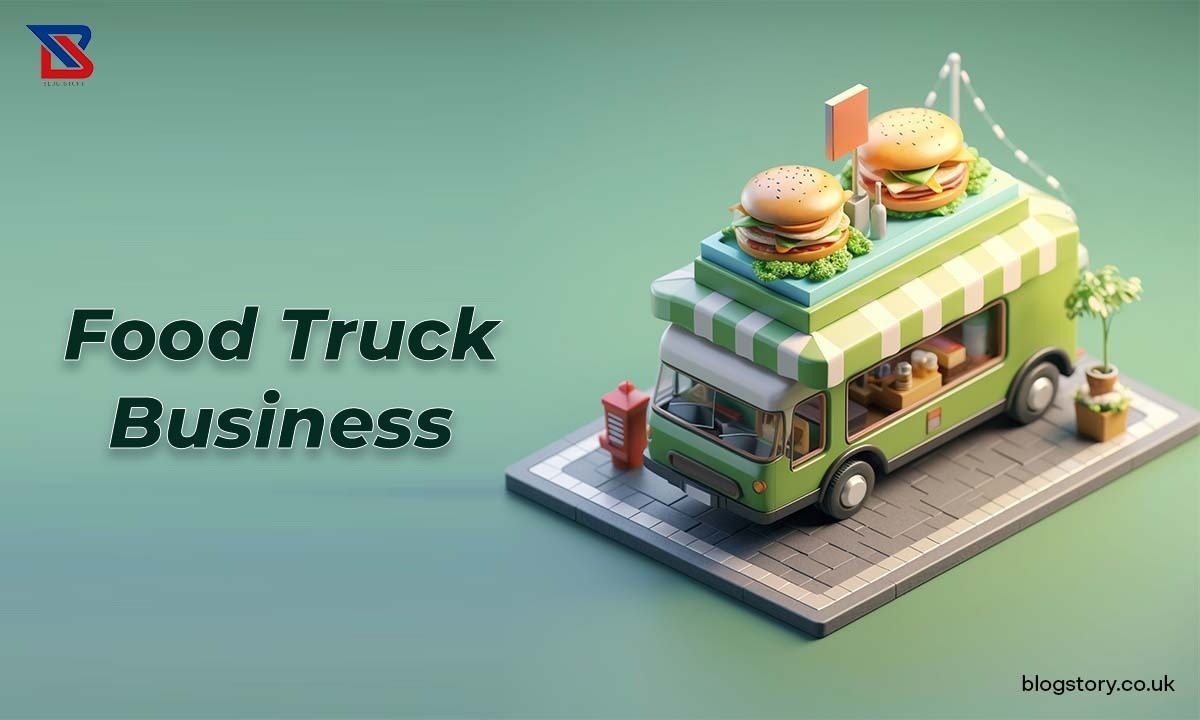
Setting up a Burger Van Business – Ultimate Guide
Are you eager to set up your very first Burger Van Business?
Well, it’s an honor to see you land at the right place.
The food business has grown immensely worldwide. If burgers are something that you like or you can create mouthwatering variations to create that special relishment for people, you must set up a burger van for sure.
Find “burger van near me” or “burger vans near me” to talk to its owner and get a brief idea of what setting up a food truck business looks like.
Burger Van: Meaning And What The Market Looks Like
The UK burger industry, valued at £3.28billion, is booming thanks to the popularity of food trucks.
Being a burger van business owner, you can offer freshly made, tasty food at different events.
Burgers, which were traditionally associated with the United States, have become increasingly popular in the UK.
Many burger vans in the UK offer a wide range of burgers, burger patties, burgers on buns, burgers with toppings, and burgers with relishes.
Inspired by American food trucks, British food vans are popular at events such as markets, fairs, and festivals.
Running a burger van means preparing, cooking, and serving food.
You can specialize in one product, or offer a wide variety of burgers, burger toppings, sauces, and beverages.
It’s important to think about local competition, your target market, and profitability.
How To Set Up A Burger Van Business Flawlessly

It’s important to know your target market in order to decide what type of burgers you’ll sell and where your burger van will be most successful. You’ll be able to operate your burger van at a variety of locations, including:
- Organized events
- Food markets
- Business districts
- Farmers’ markets
- Sporting events
- Nightlife areas
- Roadsides
- Pop-up events
- Social events
- People with specific food requirements
Your target market will be determined by several factors, including your menu, price point, competition, and brand identity.
What types of burgers do you plan to make?
How much do you charge for ingredients and customer service?
Your local competition?
Your brand identity will affect your target market. Focus on a previously unexplored niche or product. When you are done deciding the above points, you should go through the following parameters.
Equipment
Buying equipment is one of the most important start-up costs for a burger van business.
Buying equipment is a low-cost way to get your business up and running. Larger equipment can be bought second-hand or leased.
1. Vehicle
Buying a burger van or burger trailer is one of the biggest upfront costs for your business. Vans come standard with inbuilt cooking equipment and a fridge but you’ll need to customize them for food sales.
Vans start at around £20k and go up to around £200k. A cheaper option is a burger trailer, but it does need to be transported and can cost between £5k and £50k.
Secondhand vehicles are subject to stringent gas and electrical checks and may not meet all legal requirements.
2. Food Warmer
If you work in busy areas where there are a lot of people around, you may cook some of your food in advance.
With a food warmer, you’ll be able to keep the food cooked until it’s ready to serve. The average price for a food warmer is £40, but you’ll likely pay more if you need a bigger one.
3. Preparation Cum Cooking Equipment
The following are the preparation and cooking equipment you would need to set up your burger van:
- Chopping boards
- Knives
- Food Processor
- Frying Pan
- Cheese Grater
- Thermometer
- Timer
- Utensils
- Grill and Fryer
- Installed in your van
4. Display Boards And Menu
Eye-catching display boards are a great way to draw in customers. They should also make it easy for customers to view the price of your food products as well as any additional information you provide, like allergen information.
5. Eating And Serving Equipment
One of the first things you’ll need to provide is something to hold your burgers in. A lot of customers will want to be able to take their food out or eat it on the go.
Plastic takeaway containers are a good option, as well as paper napkins and cups for drinks. For larger orders, you may also want to consider paper bags. You’ll also need to provide cutlery as well as paper straws.
6. Cleaning Equipment
Clean your burger van’s food prep, cooking, and storage areas on a regular basis to avoid cross-contamination and bacterial growth.
Use cleaning supplies such as clothes, mushrooms, antibacterial cleaning products, bleach, disinfectants, and a broom.
7. Other Equipment
There are many different accessories you can add to your burger van business, such as sauce dispensers, pumps, squeezy bottles, salt and pepper dispensers, sachets, a cash register and POS system, rubbish bins, a sanitizing/hand washing station, etc.
Pricing
How much does it cost to set up a burger van? The typical costs for setting up a burger van vary.
You can buy a burger van for sale to cut a bit of cost. However, here are some of the typical costs associated with starting a burger van business.
(i) Price Of Equipment
The cost of equipment varies depending on the type of car you have. New costs range from £50k to £250k. Buying second-hand or renting can reduce the start-up cost.
(ii) Pitching Cost
How much does a burger van pitch cost?
Event pitching fees can vary from £20 per day to £200 per day. However, higher fees can result in higher profits, for example, at music festivals despite higher ticket sales.
So, you can get an idea of how much is a burger van pitch at Glastonbury if you are residing there.
(iii) Cost of Street Trading License
Street trading licenses can cost between £75 and £1,000 depending on the council you live in. You can apply for a license with your local council and then pay a license fee to trade.
You may also have to pay a weekly or monthly license fee. You can find out more about street trading licenses by contacting your local council or by visiting gov.uk.
(iv) Cost For Food Hygiene Training
Food safety and hygiene training can be completed for as little as £20+ VAT on any website. Refresh your training every 3 years, so make sure you factor this into your budget. Food hygiene training is also recommended if you hire any staff.
(v) Insurance Cost
Legal indemnity insurance, product liability insurance, public liability insurance, business vehicle insurance and contents insurance are just a few of the types of insurance you might need.
Depending on your coverage and insurance provider, you can expect to pay anywhere from £100 to £500 for insurance.
(vi) Business Running Cost
Running costs are a large number of expenses that come with owning a burger van business. These costs can include overhead costs like electricity, gas, and petrol, as well as equipment replacement and upgrades.
Additionally, running costs can include stock and ingredients, so it’s important to keep your running costs low to maximize your profits.
(vii) Cost Of Food Stock And Ingredients
To get the most bang for your buck, your stock cost should be no higher than 30% to 40% of your sale price. So, to figure out your food stock cost, you need to first figure out how much you charge for your menu and how many menu sales you want to make per month.
How much does it cost to run a burger van?
How much does a burger van cost to run?
How much do burger vans cost to operate? What are your price points?
The average price of a burger van is between £2 and £8 depending on a number of factors, such as the quality of your ingredients, your overhead costs, your location, your target markets, and the types of burgers you serve.
Bottom Line
Starting a burger van business takes a lot of planning and hard work. From choosing the right location to creating an amazing menu, every little detail matters. But building a loyal customer base isn’t just about serving delicious burgers.
It’s about providing outstanding customer service and marketing. Additionally, you must also consider how to apply for a burger van pitch.
Can I park my burger van in a layby?
Yes, you can. But you might need some government permissions to do so.
Can I put a burger van on private land?
Definitely, you can if you have required government permissions and authority/consent from the landowner.
As you navigate the ins and outs of regulations and permitting, keep food safety and hygiene in mind. Be ready to adapt to changing trends and changing customer preferences to stay ahead of the game in this ever-changing industry.
With hard work and strategic decisions, your burger van business can become a success, delighting your customers with every bite.
You May Like Also:













https://sportscom.co.kr/npsloans/
Great insights! I found your take on sustainable living incredibly practical. Looking forward to implementing some of these tips! Check out [Get Info](https://coolstuff.lol/?utm_source=google&utm_medium=search&utm_campaign=promotion) for more inspiring content.
https://k-studio.kr/page/10/
https://m.expert.naver.com/mobile/expert/product/detail?storeId=100032751
Great insights! I found your take on sustainable living incredibly practical. Looking forward to implementing some of these tips! Check out [get info](https://findyourway.wiki/utm_source=google&utm_medium=search&utm_campaign=promotion) for more inspiring content.